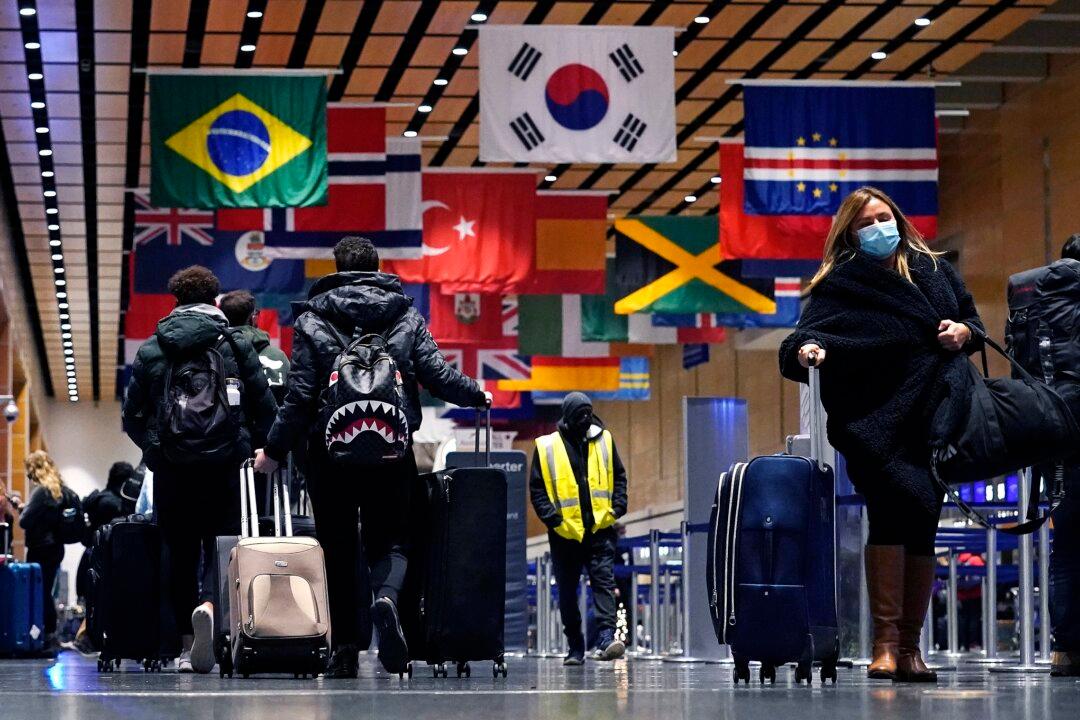NEW YORK—Airlines canceled hundreds of flights as measures taken in response to the Omicron variant jumbled schedules and drew down staffing levels at some carriers during the busy holiday travel season.
Delta Air Lines and United Airlines together canceled more than 600 flights on Friday and Saturday. As of early evening Friday, Delta canceled had 149 flights on Friday and 188 for Christmas Day, according to FlightAware. (Other factors, such as weather, are also causing cancellations.) United called off 189 flights on Friday, about 10 percent of its schedule, and 140 on Saturday. Planned cancellations continued into Sunday.





